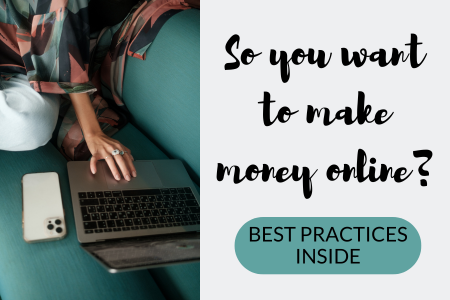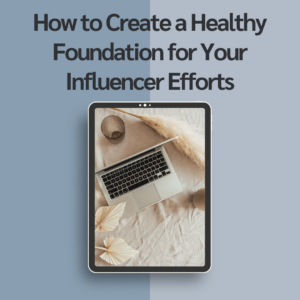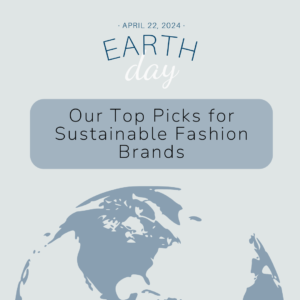Six Tips for Becoming an Influencer and Affiliate in 2024
Today’s creator economy — an ecosystem where content creators, from YouTubers to filmmakers to podcasters to influencers, can monetize their passions — looks much different than it did 15 years ago.
We’re a long way from everyday people becoming stars overnight after doing their makeup or complaining about a 300-page phone bill on a blurry webcam. Now some creators have professional camera equipment and 250-person production teams just to produce a single video!
And with more than 50 million people considering themselves influencers, the creator economy is more saturated than ever.
So, if you’re aspiring to become an influencer or affiliate, it’s easy to think “what’s the point in trying” with so many barriers to entry today.
But never fear; that’s why our blog is here.
We’ll walk through six best practices for you to navigate this new landscape, work with brands and kickstart your influencer or affiliate career in 2024.
But before we get into that, let’s start with the basics.
Are influencers and affiliates the same?
While they both work with brands, there are some differences in their approach.
- Affiliates earn a commission by promoting a product or service made by another retailer or advertiser using an affiliate link, operating on a cost per action (CPA) payout model when working with brands. These actions can include sales, leads, clicks to a website, or downloads for an app, with affiliates getting paid when someone does these actions.
- Influencers have an engaged social media following and can influence the opinions, behaviors, and purchase decisions of their followers. They get paid by brands in either product or at a flat fee, or a fixed amount of money, for their services.
However, there is some overlap. Some influencers are affiliates and some affiliates are influencers, but not all influencers are affiliates and vice versa.
Ever have an influencer direct you to their Amazon Storefront or to click the link in their bio? That means they’re also an affiliate. And that sweet spot in between, where there’s crossover, is where BrandCycle lives and thrives.
Now that we’ve got the basics down, let’s get into what you came for.
Here are six best practices for becoming an influencer and affiliate:
Find your passion
Before becoming an influencer or affiliate, the most important thing is to find your passion. Contrary to popular belief, your success doesn’t solely hinge on which platform you post on, which niche you pursue or even the content you make; it’s your passion that makes a difference.
The biggest mistake some aspiring creators make is basing their career on what’s trending, like travel content or video essays, rather than something they’re genuinely interested in. But that only leads to faster burnout, which 79% of creators struggle with!
To avoid that, think about something you enjoy doing. Can you see yourself making posts about it multiple times a day, multiple times a week? Because that’s what you’ll have to do as an influencer or affiliate. If so, then you’re good to go. If not…then you may need to rethink that particular niche.
Be a rabid content consumer
It’s not enough to want to be an influencer or affiliate, you have to constantly consume content. This means following similar creators and paying attention to what they’re posting, what they’re talking about, etc. When you do, your content will be more responsive to market trends and you’ll remain relevant to your community.
However, your content shouldn’t be a copy-and-paste reflection of other creators. Use what they’re posting to inspire your own original content. Make sure you’re setting the curve instead of simply responding to it. This can help you stand out in a sea of upcoming influencers and affiliates who are only following what everyone else is doing.
Engage with your community
Admit it: You get excited when a creator you follow responds to your comment. No shame, so do we!
That’s why it’s important that influencers and affiliates, regardless of size or popularity, engage with their community. Your platform exists because of your community, so keeping them engaged and interested in you should be a priority.
This means responding to their comments, running contests, and even asking for their feedback. Your community wants to know that you see and value them, and gestures like these show that you do.
The other side is also listening to what they say. Your community’s feedback shouldn’t fall on deaf ears. Let’s say you do a brand partnership and that brand gets backlash from your community. You should listen to their feedback and scale back on promoting that brand.
Partner with a mix of big and small brands
As you start thinking about brand partnerships, we know it’s tempting to only work with household name brands. They offer credibility and authority, which is invaluable for early influencers and affiliates trying to build their own credibility and authority. But it’s best to partner with a mix of both marquee brands and smaller brands.
For example, we work with ABLE, a women-run ethical brand that should be on your radar. And although it’s not the biggest name (yet!), its team is highly engaged in creator partnerships, showing that they want to work with creators. So, while big brands have a lot of opportunities, remember that smaller brands do too, and you shouldn’t overlook them.
Define what success looks like in a brand partnership
Whatever brands you end up partnering with, remember to mutually define what success looks like. You and the brand need to be aligned on the campaign’s content, which key messaging to include, what the campaign outcome should be, etc. If not, you’ll be playing a guessing game, wasting both your time and the brand’s.
Asking the brand (or us!) questions is how you’ll avoid misalignment. Ask questions like, “What’s your primary key performance indicator (KPI)?” Or, “What’s your secondary KPI?” Some brands only want clicks; some may want a certain number of views. It all varies, which is why it’s best to be on the same page.
Communicate, communicate, communicate
Finally, communicate. That’s it, that’s the sentence. You need to communicate during brand partnerships. If your brand contact emails you with questions, get back to them within 24 hours. Don’t wait a week, and definitely don’t ignore them.
The easier you are to work with, the more likely you are to get on the next campaign. If you’re someone who drops off and doesn’t communicate, you’ll get fewer campaigns. Being easy to work with is always a best practice.
Wrapping Up
There you have it! We hope these tips are helpful in your journey to becoming the next big influencer or affiliate. If you want to work with a team that can help you navigate the journey, try us! Apply today to get started.
Photo by Laura Chouette on Unsplash
Recent Posts

Creators’ Guide to Making Money Online

How to Create a Healthy Foundation for Your Influencer Efforts

